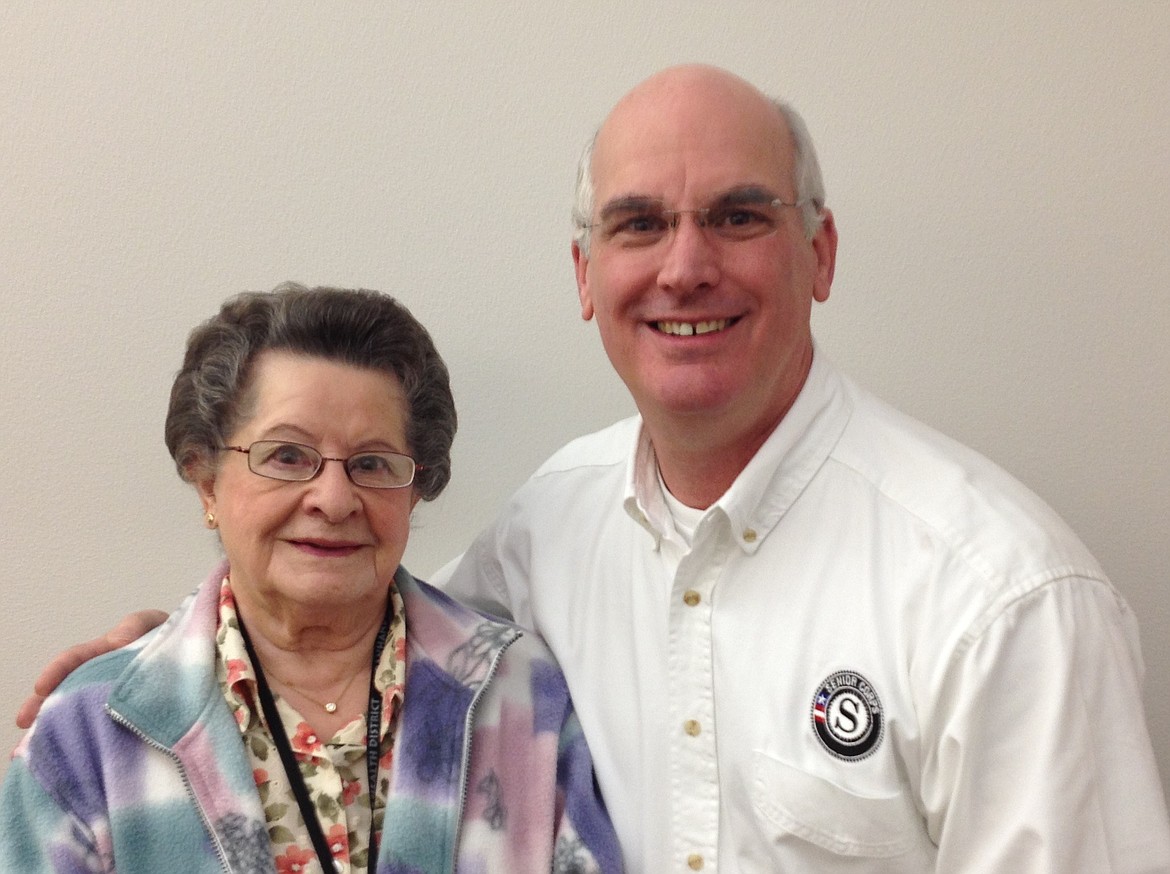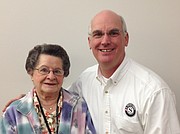Senior Companions Program connects people to purpose
There are thousands of seniors living in North Idaho, many of them alone, but their days don’t have to be lonely or boring thanks to programs like Senior Companions.
Managed in North Idaho by the Panhandle Health District, the Senior Companions Program provides meaningful retirement opportunities for volunteers who are 55 and older, while bringing support and friendship to their more frail peers who live alone and are unable to drive.
“These people have someone who can come and visit with them. If they need to go to the market, we can take them to that or wherever else they need to go,” said Dolores Hawkins, a longtime Senior Companion volunteer in Kootenai County.
Hawkins and other Senior Companions bring a “servant’s heart” to their volunteerism, said Daniel Perry, Senior Companions Project Director for Panhandle Health District.
“They are truly concerned that the clients - these isolated adults - may be frightened or forgotten,” Perry said.
Perry said the goal of Senior Companions — a Senior Corps program that operates under the umbrella of The Corporation for National and Community Service (CNCS) — is to help the clients live as independently as possible.
The volunteers share their experience with clients and offer companionship in different ways, depending on a client’s needs.
Senior Companions will shop with clients, or they can provide transportation so clients can run errands, participate in community events or get to health care appointments. Sometimes Senior Companions will assist clients with paperwork, or help a client find community resources.
Companions may play cards or a board game with their clients, or they might just sit and reminisce with them while drinking coffee.
Senior Companions volunteers don’t provide any health care.
Services are offered to clients free of charge.
Volunteer companions are matched with clients with compatible interests, Perry said.
“They somehow know to put me with someone who needs attention, who needs someone to talk to,” Hawkins said.
Hawkins’ favorite part of being a volunteer Senior Companion is getting to meet and know many new people.
Good volunteer matches generally share interests in hobbies and personality. Past professions and life experiences are also considered in order to ensure that a volunteer and client will enjoy each others’ company.
No volunteer is required to work with any particular client.
Seniors make up a significant part of the population of Idaho’s five northern counties — the area served by North Idaho’s Senior Companions program.
The Idaho Commission on Aging reported in 2017 that there were 52,773 individuals age 60 and older living in the region. U.S. Census estimates show Idaho’s five northern counties, with senior populations of 24 to 31 percent, have a greater concentration of older residents. The national percentage of seniors in the population is between 15 and 16 percent.
Among the 60-plus crowd in North Idaho, nearly 3,000 live in poverty and 8,800 live alone.
Perry said the Senior Companions Program is now serving about 100 clients throughout the region, with about 30 on a waiting list.
“We’re not short on clients, we’re short on volunteers,” he said.
Each client gets two visits per week, about six hours weekly.
These days, Sophie Larson, another longtime Senior Companions volunteer, is companion to three seniors in Shoshone County where she lives, though she’s worked with as many as eight clients at once.
Some of these seniors receive more visits from Larson than from their families.
“Sometimes I’m amazed at the number of our clients who don’t have family nearby,” Perry said.
There are other clients, homebound adults, whose families are their primary caregivers. For those relatives, Senior Companions volunteer visits offer much-needed respite time.
The program also benefits volunteers, who after retirement, are able to
develop bonds with their clients that enrich their lives, and through their volunteerism, they are often able to maintain, and even sometimes regain, their own physical and emotional health.
Larson, who became a Senior Companion in 2005 after her husband went into assisted living, recalled a time when one of her clients suddenly became ill and had to be rushed to the hospital. When Larson went to see the client, the woman asked for a hug. As they embraced, the client said something that has stayed with Larson ever since.
“She said, ‘You know, Sophie, the day God sent you to me, He sent me an angel.’ I started crying,” Larson said. “A few days later, she died in my arms. It was very sad for me. But I keep going.”
Staff writer Kaye Thornbrugh contributed to this report.



